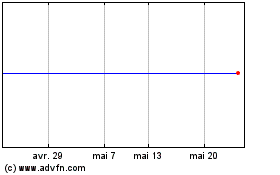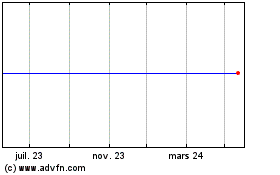Roche receives FDA approval for the first companion diagnostic to identify patients with HER2-ultralow metastatic breast cancer eligible for ENHERTU
31 Janvier 2025 - 5:45PM
UK Regulatory
Roche receives FDA approval for the first companion diagnostic to
identify patients with HER2-ultralow metastatic breast cancer
eligible for ENHERTU
- As seen in the DESTINY-Breast06 trial,
approximately 20-25 percent of hormone receptor
(HR)-positive, HER2-negative breast cancer patients may be
considered HER2-ultralow.1 These patients may now be
eligible for a targeted treatment, which could significantly
improve their outcomes.
- The PATHWAY HER2 (4B5) test, the first and only FDA
approved companion diagnostic for assessing HER2-low status since
2022, is now also approved to aid in the assessment of
HER2-ultralow status for metastatic breast cancer
patients.
- HER2 interpretation in breast cancer is evolving. With
the introduction of HER2-low and now HER2-ultralow classifications,
Roche continues to lead in HER2 diagnostics, helping to expand
patient access to personalised treatment.
Basel, 31 January 2025 - Roche (SIX: RO, ROG; OTCQX: RHHBY)
announced today that the U.S. Food and Drug Administration (FDA)
has approved a label expansion for the PATHWAY® anti-HER2/neu (4B5)
Rabbit Monoclonal Primary Antibody* to identify patients with
HR-positive, HER2-ultralow metastatic breast cancer who may be
eligible for treatment with ENHERTU®. ENHERTU is a specifically
engineered HER2-directed antibody drug conjugate (ADC) discovered
by Daiichi Sankyo and being jointly developed and commercialised by
Daiichi Sankyo and AstraZeneca.
Until the introduction of HER2-low status in 2022, HER2 status
was categorised as either “positive” or “negative” based on the
level of HER2 expression. The PATHWAY HER2 (4B5) test has now
received approval to identify a new patient population designated
as "HER2-ultralow." HER2-ultralow refers to patients who have very
low levels of HER2 expression, even lower than the existing
HER2-low category.
“One in eight women in the United States will face invasive
breast cancer in their lifetime,” said Matt Sause, CEO of Roche
Diagnostics. “The rising incidence of metastatic breast cancer,
particularly among younger populations, underscores the urgent need
for new diagnostic options. The approval of our test for
determining HER2-ultralow status offers new hope to patients by
providing a possible path to HER2-targeted treatment where none
existed before, helping clinicians transform outcomes for many
facing this challenging disease.”
HER2 is a receptor protein that helps cancer cells grow quickly.
To determine a patient’s HER2 status, pathologists evaluate, or
score, the level of HER2 receptor protein expressed in breast
cancer tissue samples. The PATHWAY HER2 (4B5) test was used as part
of the DESTINY-Breast06 trial, which showed a median
progression-free survival of 13.2 months with ENHERTU compared to
8.1 months with the standard of care (chemotherapy) in the overall
trial population of patients with HER2-low and HER2-ultralow
metastatic breast cancer. An exploratory analysis showed the
results were consistent between patients with HER2-low and
HER2-ultralow expression.2
The FDA approval of the new HER2-ultralow indication expands on
the intended use for Roche’s on-market PATHWAY anti-HER2 (4B5)
test, proven in delivering timely, clear, and confident results.
The launch further strengthens and differentiates Roche’s
comprehensive breast cancer solutions portfolio, aiding patients
and providers in making informed decisions to improve outcomes.
About PATHWAY anti-HER2/neu (4B5) Rabbit Monoclonal
Antibody
Roche’s pre-diluted PATHWAY anti-HER2/neu (4B5) Rabbit Monoclonal
Primary Antibody, used in combination with the fully automated
BenchMark IHC/ISH slide staining instrument, standardises all
immunohistochemistry (IHC) processes from baking through staining
and reduces the possibility of human error.3 It also
minimises inherent variability resulting from individual reagent
dilution and other processes found in manual and semi-automated IHC
methods. The Roche HER2 (4B5) clone achieves consistently high
proficiency assessment scores compared to other clones 4
and demonstrates high concordance with HER2 FISH,5,6
empowering laboratories to employ the most widely adopted and
reliable HER2-IHC primary antibody.
About Roche
Founded in 1896 in Basel, Switzerland, as one of the first
industrial manufacturers of branded medicines, Roche has grown into
the world’s largest biotechnology company and the global leader in
in-vitro diagnostics. The company pursues scientific excellence to
discover and develop medicines and diagnostics for improving and
saving the lives of people around the world. We are a pioneer in
personalised healthcare and want to further transform how
healthcare is delivered to have an even greater impact. To provide
the best care for each person we partner with many stakeholders and
combine our strengths in Diagnostics and Pharma with data insights
from the clinical practice.
For over 125 years, sustainability has been an integral part of
Roche’s business. As a science-driven company, our greatest
contribution to society is developing innovative medicines and
diagnostics that help people live healthier lives. Roche is
committed to the Science Based Targets initiative and the
Sustainable Markets Initiative to achieve net zero by 2045.
Genentech, in the United States, is a wholly owned member of the
Roche Group. Roche is the majority shareholder in Chugai
Pharmaceutical, Japan.
For more information, please visit www.roche.com.
* Hereafter referred to as PATHWAY HER2 (4B5) test
All trademarks used or mentioned in this release are protected
by law.
References
[1] Salgado RF, et al. LBA21 - Human epidermal growth factor
receptor 2 (HER2)-low and HER2-ultralow status determination in
tumors of patients (pts) with hormone receptor–positive (HR+)
metastatic breast cancer (mBC) in DESTINY-Breast06 (DB-06). Annals
of Oncology. (2024) 35 (suppl_2): 1-72.
10.1016/annonc/annonc1623.
[2] Bardia A, et. al. Trastuzumab Deruxtecan after Endocrine
Therapy in Metastatic Breast Cancer, New England Journal of
Medicine. 2024; 391:2110-2122
[3] PATHWAY anti-HER-2/neu (4B5) Rabbit Monoclonal Primary Antibody
Package Insert
[4] NORDIQC HER2 IHC Assessment Run B37 2024
[5] Mayr D, et al. Comprehensive immunohistochemical analysis of
Her-2/neu oncoprotein overexpression in breast cancer: HercepTest™
(Dako) for manual testing and Her-2/neuTest 4B5 (VENTANA) for
VENTANA BenchMark automatic staining system with correlation to
results of BenchMark automatic staining system with correlation to
results of fluorescence in situ hybridization (FISH). Virchows
Archiv. 2009; 454(3):241–248.
[6] Brügmann A, Lelkaitis G, Nielsen S, et al. Testing HER2 in
breast cancer: a comparative study on BRISH, FISH, and IHC. Appl
Immunohistochem Mol Morphol. 2011;19(3):203-211.
Roche Global Media
Relations
Phone: +41 61 688 8888 /
e-mail: media.relations@roche.com
Hans Trees,
PhD
Phone: +41 79 407 72 58 |
Sileia Urech
Phone: +41 79 935 81 48
|
Nathalie
Altermatt
Phone: +41 79 771 05 25 |
Lorena
Corfas
Phone: +41 79 568 24 95
|
Simon
Goldsborough
Phone: +44 797 32 72 915 |
Karsten
Kleine
Phone: +41 79 461 86 83
|
Nina
Mählitz
Phone: +41 79 327 54 74 |
Kirti
Pandey
Phone: +49 172 6367262
|
Yvette
Petillon
Phone: +41 79 961 92 50 |
Dr Rebekka
Schnell
Phone: +41 79 205 27 03 |
- 31012025_ HER2-ultralow US FDA


Roche (LSE:0QQ6)
Graphique Historique de l'Action
De Jan 2025 à Fév 2025

Roche (LSE:0QQ6)
Graphique Historique de l'Action
De Fév 2024 à Fév 2025


